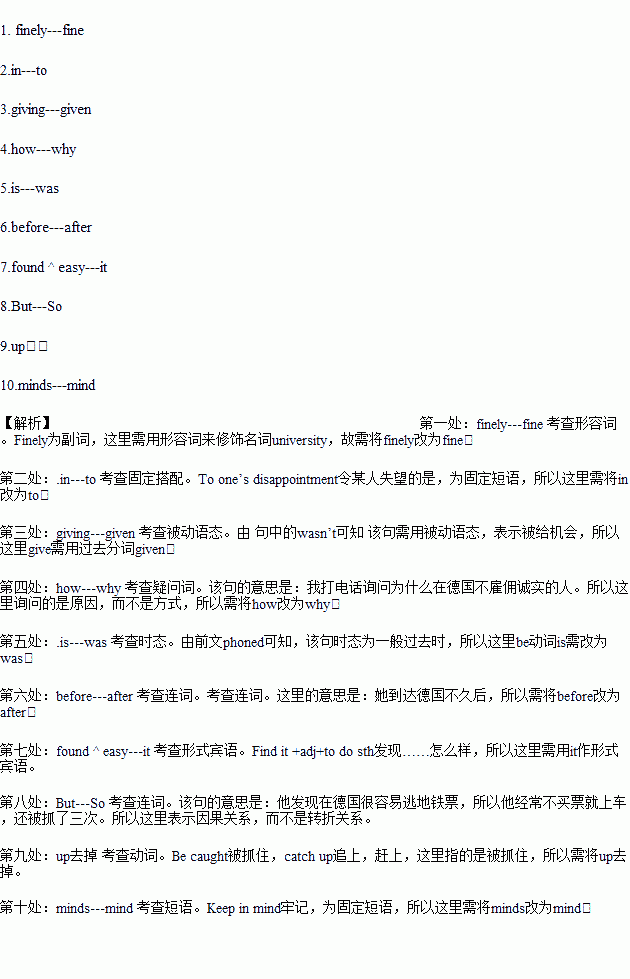ΧβΡΩΡΎ»ί
ΦΌΕ®”Δ”οΩΈ…œάœ Π“Σ«σΆ§Ήά÷°Φδ–όΗΡΉςΈΡΘ§«κΡψ–όΗΡΡψΆ§Ήά–¥ΒΡ“‘œ¬ΉςΈΡΘ§ΈΡ÷–Ι≤”–Θ±ΘΑ¥Π”ο―‘¥μΈσΘ§ΟΩΨδ÷–ΉνΕύ”–ΝΫ¥ΠΘ§ ΟΩ¥Π÷Μ…φΦΑ“ΜΗωΒΞ¥ ΒΡ‘ωΦ”ΓΔ…Ψ≥ΐΜρ–όΗΡΓΘ
‘ωΦ”ΘΚ‘Ύ»±¥ ¥ΠΦ”“ΜΗω¬©Ή÷ΖϊΚ≈Θ®ΘόΘ©Θ§≤Δ‘ΎΤδœ¬Οφ–¥≥ωΗΟΦ”ΒΡ¥ ΓΘ
…Ψ≥ΐΘΚΑ―Εύ”ύΒΡ¥ ”ΟΘ®ΘήΘ©Μ°ΒτΘΜ
–όΗΡΘΚ‘Ύ¥μΒΡ¥ œ¬ΟφΜ°“ΜΚαœΏΘ§≤Δ‘ΎΗΟ¥ œ¬Οφ–¥≥ω–όΗΡΚσΒΡ¥ ΓΘ
ΉΔ“βΘΚ1.ΟΩ¥Π¥μΈσΦΑΤδ–όΗΡΨυ÷Μœό“Μ¥ ΓΘ
2.÷Μ‘ –μ–όΗΡ10¥ΠΘ§Εύ’ΏΘ®¥”11¥ΠΤπΘ©≤ΜΦΤΖ÷ΓΘ
A foreign student graduated with honors from a finely university in Germany. He expected to find a good job and have a bright future. But in his disappointment, he wasn't even giving the chance for an interview! The third time he was refused, he phoned the company to ask how. "We don't employ dishonest people in Germany" is the answer. What was wrong? Shortly before he arrived in Germany, he found easy to steal subway rides. But he often rode without a ticket and was caught up three times. Now he had to pa y a high price for his own behavior. We should all keep in minds: honesty is the best policy.
y a high price for his own behavior. We should all keep in minds: honesty is the best policy.

